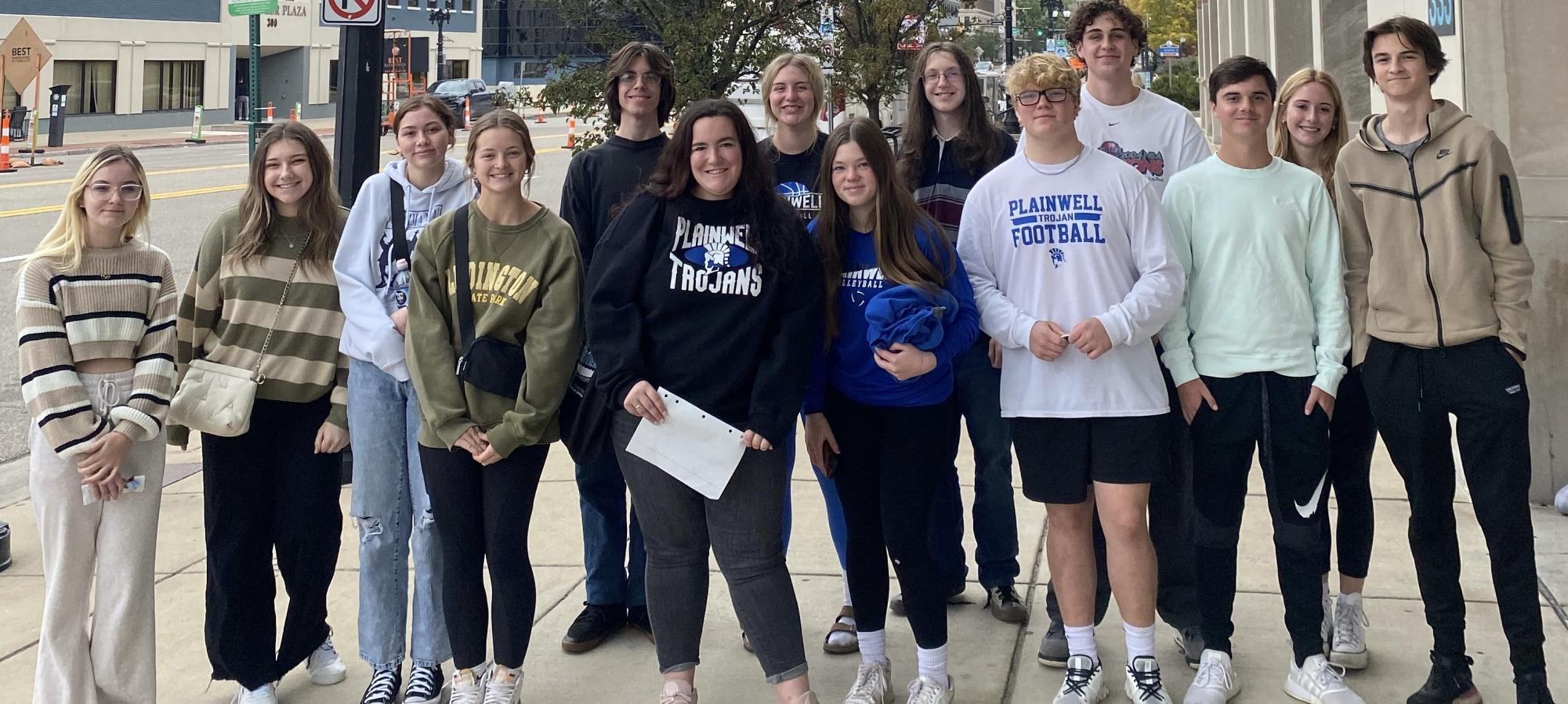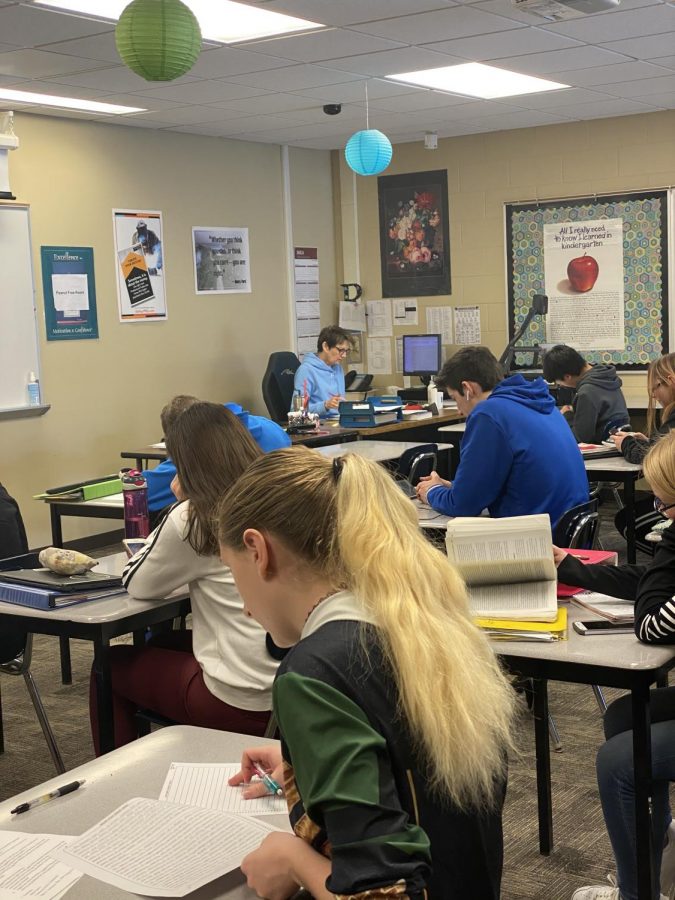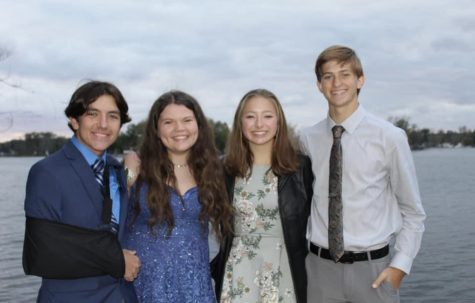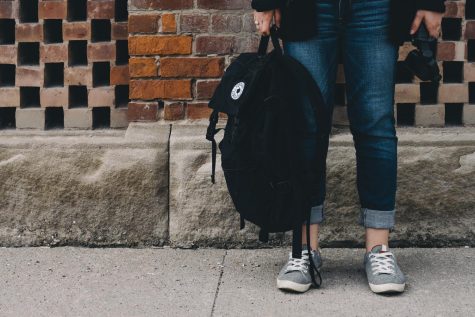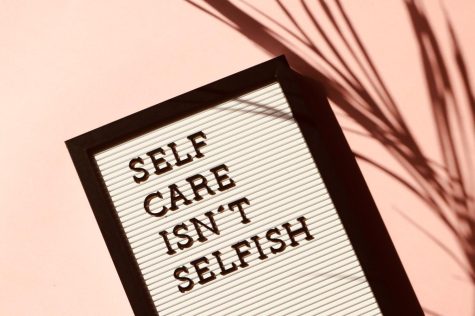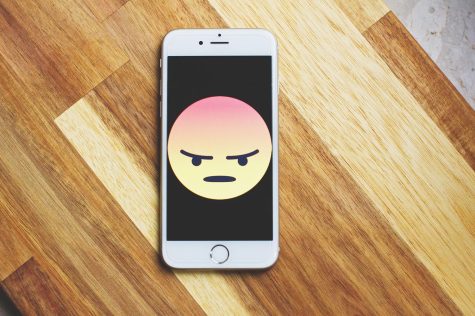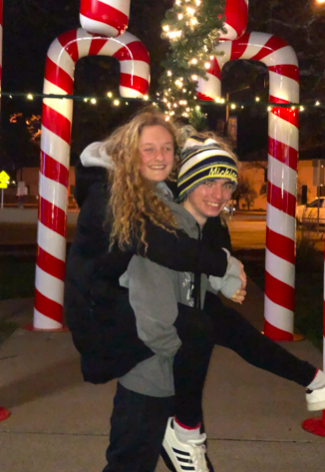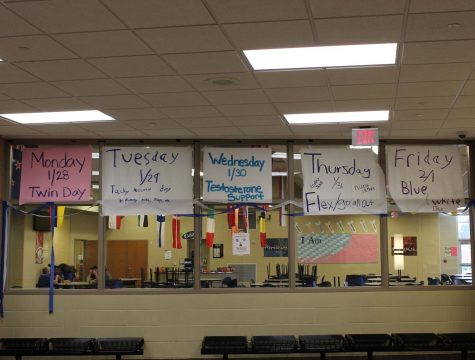You are not alone: teen dating violence is real
Two victims of dating violence share their story to reach others who may be in the same position.
Students in Post Secondary Prep, a class taught by Julie Root, learn about dating violence and hear first hand stories from victims, like Emma Granzow.
February 28, 2020
Nearly 1.5 million high schoolers experience teen dating violence every year, according to loveisrespect.org, a website that describes its mission as engaging, educating and empowering young people to prevent and end abusive relationships. This number begs the question: how many PHS students experience dating violence?
February is Teen Dating Violence Awareness Month; by opening up conversations about dating violence the hope is that organizers can increase awareness and decrease abusive relationships in teens.
One in three teens in the U.S. is a victim of dating violence, according to loveisrespect.org; with just over 800 students at PHS, that estimates that close to 266 students have experienced dating violence in our school.
One junior female, who wanted to remain anonymous, recently got out of an emotionally toxic and manipulative relationship.
“My mental health has deteriorated since, I’m scared to be in another relationship and I have trust issues now more than ever,” she said.
She goes on to advise anyone going through a violent relationship to “put your happiness first, and just know that it’s not selfish to know you deserve better.”
An abusive relationship can be traumatic, and many victims aren’t comfortable sharing their experiences. Many, like the female who remained anonymous, share their stories in a way that will not put them in an unsafe position. But, after years of be cautious, Plainwell alumn Emma Granzow now speaks openly about her experience with abuse.
Her story takes place throughout her years at PHS. She has told her story to many, including students in Julie Root’s Post-Secondary Prep class, in order to help others learn the signs of dating violence. During her 14-month long relationship, Granzow experienced multiple of the five types of abuse–physical, sexual, emotional, financial, and psychological.
“He did try to cheat on me within the first two weeks and I let it go and he continued to do cheating type behaviors the whole relationship. Besides the anxiety and stress from that there were more abusive behaviors,” Granzow said.
Manipulation is a big component in many abuse situations. Granzow is no stranger to this tactic.
“I was constantly told I was lucky that he loved me and was with me and that no one else could put up with me like he can. That I wasn’t worth being with,” Granzow said.
There was financial abuse as well, Granzow felt pressured to give her abuser money for school activities, social life and dating life.
“Lastly, there was sexual abuse, with coercion into sexual acts and substitution for not meeting his sexual needs,” Granzow said.
Like many abusers, Granzow’s boyfriend didn’t back off when the relationship ended; rather he stalked her for close to a year, forcing her to change her life in many ways for her own protection. The lasting effects of dating violence include mental illnesses, something that Granzow has experienced first hand.
“For mental health I was wrecked; I had no self-love or trust for anyone, I was suicidal, depressed, anxious, and suffering from PTSD,” she said.
The effects on her mental health were long lasting and still affect her today.
“My anxiety is still present, as well as PTSD. The thoughts I once had when dating my ex still linger as I wonder ‘Am I worth it? Will anyone love me again?’” Granzow said.
While Granzow graduated in 2017, relationship violence doesn’t end with her. There is no denying there are students who are in abusive relationships right now, or will be in the future without proper education and proactive tactics.
Kidshealth.org tell readers to watch for signs that your significant other is being abusive or could become abusive in the future. If your partner harms you in any way, tries to control you, makes you feel unworthy, threatens to harm you, or to self harm, blames you for their actions, is constantly jealous, or demands to know where you are and who you’re with at all times, are some of the things mentioned.
“It was such a relief to tell my family and friends and get their support, even though I was scared to tell. I realize now that speaking up was the best thing, and I’m glad I did,” the anonymous junior said.
If you believe you or a friend is involved in an abusive relationship, the best thing to do is speak up and get help. The number for the National Domestic Violence Hotline is 1-866-331-9474, you can chat with representatives at loveisrespect.org or text “loveis” to 22522, any time, any day. For local help: teachers, counselors and other PHS staff members are available to talk to, as well.
